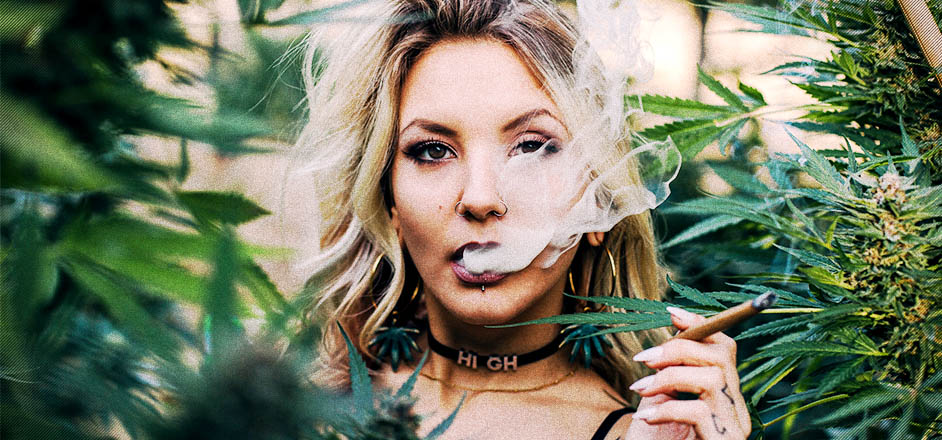Poor Keith.
Keith wakes up at 4 or 5 in the morning, worrying.
He grows 90 marijuana plants in his dark, smelly basement. For years, it was his job.
Today, he can't get rid of the stuff.
"Need weed?" he asks acquaintances. "Know anybody that needs weed?"
Most don't.
Colorado is flooded with weed. Lots of states are. Anyone who wants weed has more weed than they can smoke.
So his old buyers aren't returning his calls. And Keith is sitting on nine pounds of it, spilling out of giant glass jars.
This month, Keith had to get a real job in … ick … real estate.
"It sucks, man," Keith says, shaking his head. Up early, wearing slacks and an uncomfortable button-up, the clackety-clack of boring emails. "I have to follow this guy around all day who wastes my time. It's not cool."
Colorado legalized marijuana in part to get rid of the black market, to force drug sellers to go into real jobs.
And it's working.
In 2012, before legalization, a pound of marijuana on the Colorado black market fetched $3,000 or $4,000.
Just three years ago, Keith was earning $60,000 to $80,000 a year in cash, without doing very much work.
Today, if he can find a buyer, they sometimes offer him $1,000 a pound.
Keith is one of three underground weed growers who spoke to Rooster Magazine that was forced to leave the game because prices dropped so low. For them, the pains of real jobs await. Taxes. Performance reviews. Water coolers. Human resources. On the job sobriety.
For five decades, Americans smoked billions of dollars in marijuana each year, and all of it was grown either abroad or illegally here. Ditch weed. Closet grows. Guerilla operations on public land.
Normally, the hard-luck story goes the other way. "Things were so hard in real estate the guy had to start selling drugs."
But being a weed grower was a good life. Take Pete — who, like the others, asked Rooster not to use his real name. In the cramped but clean basement of a duplex Pete rented outside Denver, Pete set the lights and the watering system on timers, so it could run on its own for a full week while Pete lived in his condo in the mountains, skiing 50 days a year.
"There were some golden years," Pete says. "All I did was hang out with my friends and snowboard and grow weed."
Or take Rohan, an aspiring musician. He had six lights set up in his basement, growing enough weed to spend his days mixing music. No boss. No need to leave the house.
Two-thirds of the weed bought and sold in America is actually still from the dark market, according to Green Wave Advisors, a consulting firm, as reported by USA Today.
But by 2020, legal sales could exceed illegal ones.
As legalization spreads, especially to primo weed-growing environments like Oregon, Washington and California, truckloads of weed are spilling into the dark markets.
With all that weed, prices plunged.
"The whole market has completely crashed," says Pete, "People are liquidating pounds in Northern Cali and Oregon for $100 a pound."
One hundred dollars a pound! That's $6 an ounce.
Pete's last harvest was in June, five pounds, and he couldn't sell it. He's smoking it himself — slowly.
As the dark markets turn bright, basement grows are turning back into rec rooms. Closet lights are coming down. Garages are going back to holding cars. The old weed distribution networks — mostly friends selling to friends — are quickly falling apart.
"This is coming eventually for everyone," Pete says. "Weed isn't going to be thousands of dollars a pound. It's going to be a normal crop — because it is. How much do you pay for a pound of basil?"
"I just kind of gave up," Pete says. Pete is moving to another state to grow weed legally.
Like Pete, a huge portion of the legal weed industry is made up of folks who used to grow on the black market.
As an industry insider says to Rooster, "Everyone who's in weed now used to do it underground."
"We all started this way," says another.
For them, the shift to legal weed has made them rich, helped them buy houses in Mexico and Teslas and first editions of famous books.
But not everyone is making the transition to the sunny legal market.
One estimate is that only 1 in 10 of the illegal growers in California will move into the legal market. They just don't have the skills, desire or cash to navigate all the permitting and licensing that can cost about $40,000. "The free market is going to drive people out of those hills," an expert told the Washington Post. "They won't be able to make money anymore."
No matter how legal pot becomes, the pot black market will never go away completely; folks still brew and sell moonshine.
And while Keith works his job in real estate, he's still raising the plants in the basement, making a little money on the side — a fraction as much as he used to.
[Originally published April 3, 2018]




Leave a Reply